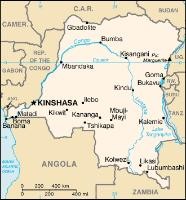KAMPALA, Uganda -- When I got off the small plane chartered by the United Nations Refugee Agency (UNHCR) that had whisked me from Kampala, Uganda, to a small town on the border with eastern Democratic Republic of Congo, I had less than half a day to conduct interviews, take photos, and file content for major Western news agencies. I looked around at what had become typical sights: women carrying everything they own on their backs, children with nothing to do, lounging men glancing suspiciously at the influx of journalists, and everyone visibly tired. Tired of running, tired of violence, tired of hunger and disease and aggression. As a journalist, I knew that I was expected to find a certain kind of story here in this refugee way station: someone traumatized in a way readers have come to expect. So I started asking questions. One lady had been displaced twice, and another had been displaced three times. But the third I spoke with, Annette Onsha, had been displaced four times.
Reporting Rape in Congo: What the Media Leaves Out

